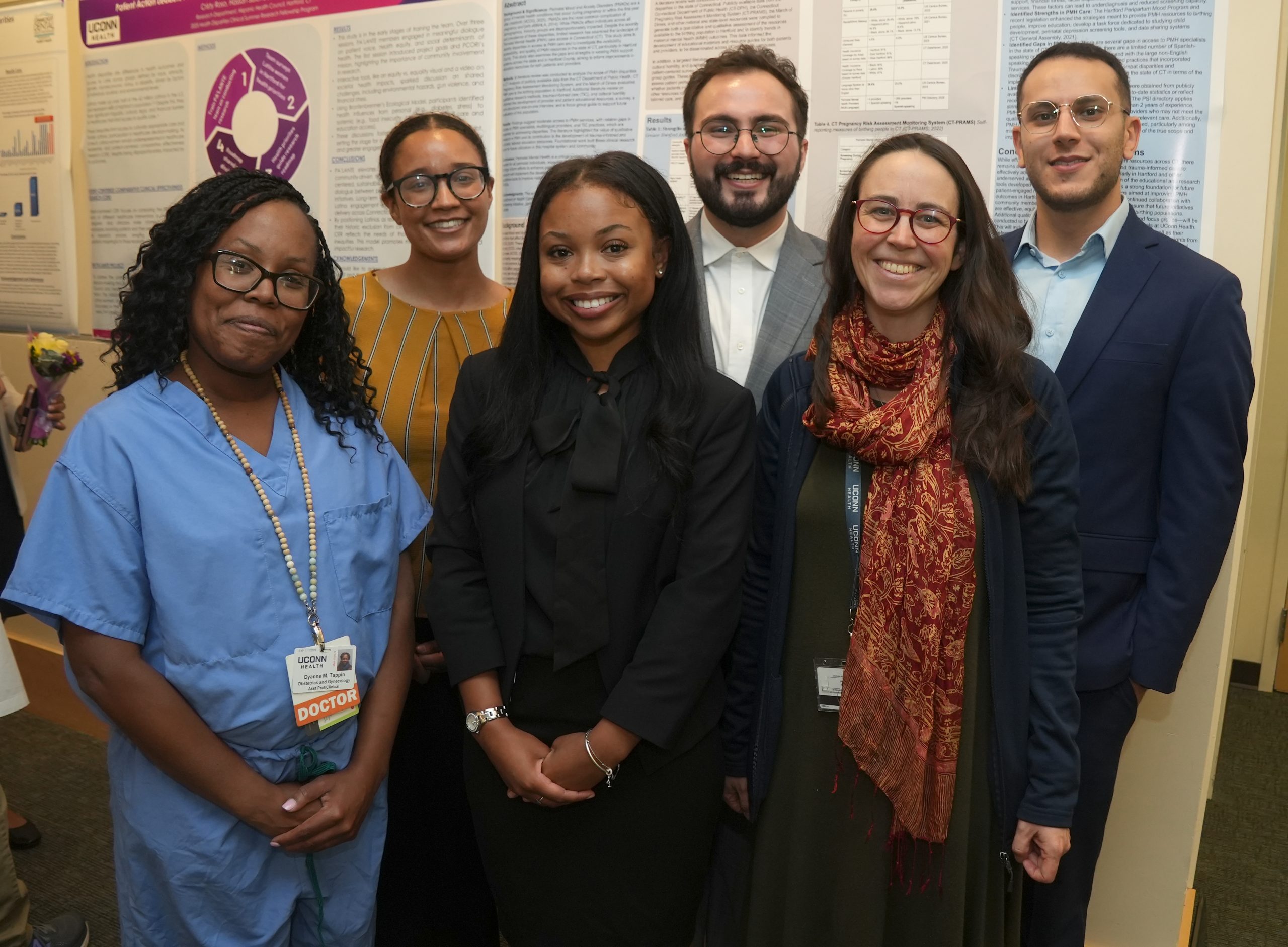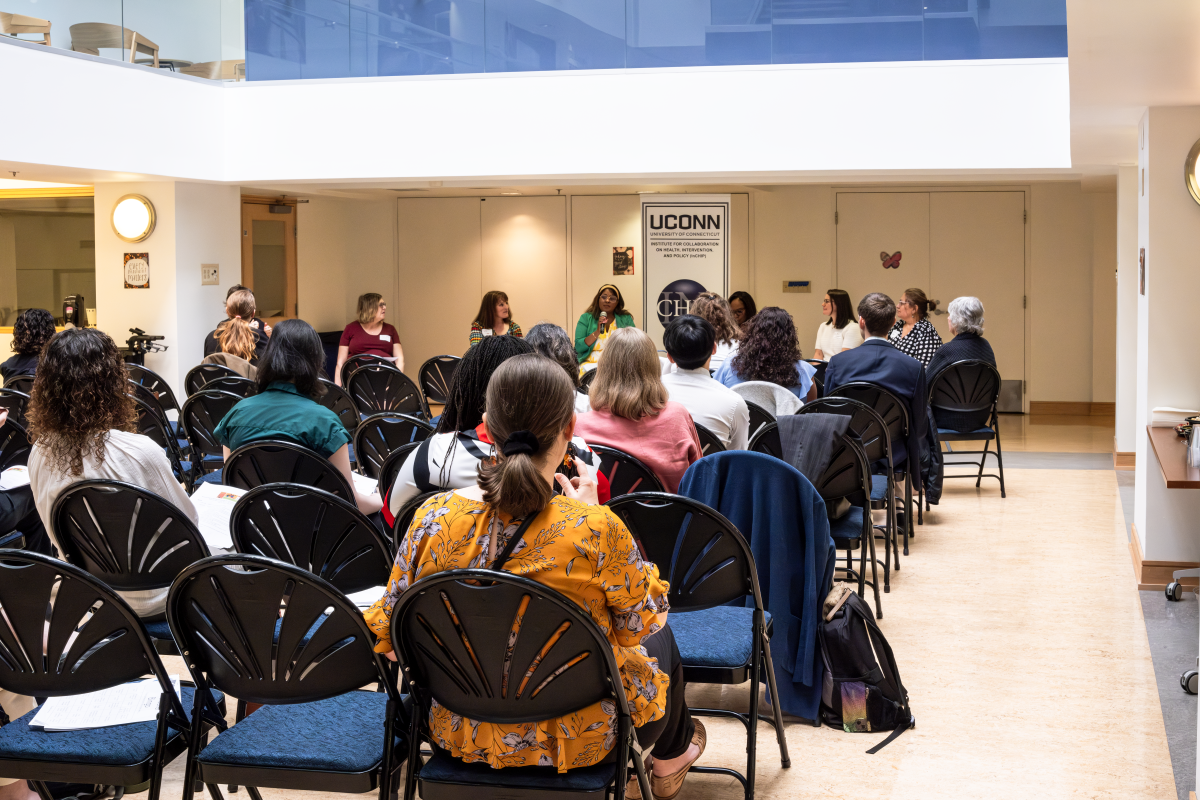UConn Establishes President’s Council on Combating Sexual Violence and Harassment
The University of Connecticut has established the President’s Council on Combating Sexual Violence and Harassment, and the group held its first meeting in early November.
The forming of this council comes as a result of the President’s Task Force on Combating Sexual Violence and Supporting Our Students, which was convened by President Radenka Maric in the spring of 2022. The task force was charged with evaluating how UConn educates, prevents, and responds to sexual violence.
The task force completed its work and released their report later that summer. The majority of the recommended actions have either been addressed, particularly in the area of increasing access points to information about existing resources, or are in process.
The council is charged with:
- monitoring and communicating the progress on implementing the recommendations from the President’s Task Force on Combating Sexual Violence and Supporting Our Students report.
- collecting information from University offices on assessment activities to determine the impact of implemented recommendations on the lived experiences of students.
- providing feedback on UConn policies, procedures, educational programming, and other communications related to sexual and gender-based misconduct.
- helping to identify trends or emerging issues; identifying course corrections as needed.
- assisting with identifying, compiling, and reporting on information about its work to prevent, respond, remediate, evaluate, and pursue organizational change related to sexual harassment.
- providing ongoing counsel to the president’s office for continuing and future initiatives to respond to and prevent sexual and other forms of gender-based violence, harassment, and discrimination.
The council will serve to build a cohesive, multi-tiered, and sustained infrastructure that facilitates the sharing of trends, best practices, and areas for enhancement across its work to support students, staff, and faculty.
It will conduct business using a two-tiered structure. There will be a core steering committee consisting of the co-chairs of each sub-committee and members of key stakeholder constituencies, Members of the UConn community are invited to participate on the sub-committees and will be selected through an application process. Applications close on November 22.
The council will also address the need for ongoing communication between students and the UConn administration to monitor and evaluate progress. Implementing any recommendations will be accompanied by feedback on the impact of students, faculty, and staff experiences.
UConn has also been accepted for membership in the National Academies of Science, Engineering, and Medicine (NASEM) Action Collaborative on Preventing Sexual Harassment in Higher Education, joining over 50 other institutions. The Action Collaborative works to encourage and support system-wide changes across higher education to prevent and address sexual harassment experienced by all people in higher education and to deal with the issue in the context of other damaging behaviors.
“By working together in the Action Collaborative, institutions of higher education can learn from one another’s successes – and challenges – in creating change in areas such as supporting victims of sexual harassment and developing transparency in areas like hiring and the utilization of institutional climate assessments,” says Vicki Magley, a professor in the Department of Psychological Sciences and chair of the Action Collaborative’s Advisory Committee.
Benefits of being part of the NASEM collaborative include the opportunity to work with other institutions on brainstorming, coordinating and sharing efforts, building community, inspiriting action, and providing opportunities to collaborate. A key aspect of the collaborative’s work is to facilitate the spread of novel and promising practices across higher education. The collaborative also provides a number of resources each year on preventing sexual harassment in higher education, such as public summits and publications.
“We are committed to ensuring that all members of our community are free from harassment, intimidation, and discrimination,” wrote Maric in UConn’s commitment letter to the NASEM collaborative. “A supportive community enables us to reach our full potential as educators, researchers, and professionals and helps ensure that our students can access the full range of opportunity they need to become fully prepared for life journeys.”
The original Task Force report acknowledges that “sexual violence is not a phenomenon unique to the University of Connecticut.” Student activism is part of a long legacy of efforts to raise awareness of and seek remedies for many different forms of violence, harassment, and discrimination. While UConn may not be able to completely eliminate these types of issues, the institution can recommit to caring and compassionate responses and primary prevention efforts with a commitment of shared purpose from all members of our community.
For more information, please email Kathleen.Holgerson@uconn.edu.
Latest UConn Today
- Incoming UConn Medical Students Get Hands-On Summer Research ExperienceFor the first time the Health Career Opportunities Program of UConn Health offered matriculating UConn medical students summer research opportunities.
- Partnering with Communities to Improve HealthInCHIP’s Community Engagement Research Core’s latest networking event offers insights for successful community research partnerships
- Study Highlights Higher Rates, Risk Factors for Non-Fatal OverdosesA new opioid overdose study has identified several key risk factors associated with non-fatal overdoses drawing from a sample of people who use opioids in New Haven
- Archiving for Justice, Truth, and Memory: Unpacking the Baggage of What Went BeforeReflections on the importance of the newest addition to UConn’s ICTY Digital Archives, the Srebrenica Genocide Archives Collection.
- Multiple Sclerosis Patient Sees Bright FutureFrom unheard to understood
- UConn AUKUS Scholars Explore Undersea Vehicle Technology, International Collaborations in AustraliaFive College of Engineering students studied systems thinking and interdisciplinary teamwork essential in modern undersea vehicle development













